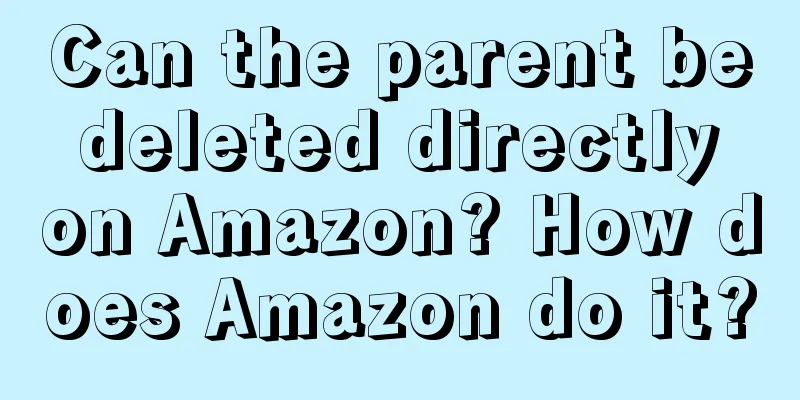After studying 100 failed consumer brands, I summarized these 15 thoughts

As the saying goes, you see the building rise, and then you see it collapse. Many founders of WeChat have embarked on triathlons (food delivery, driving for Didi, and self-media) to start their own businesses. Some brothers’ Moments are visible for three days, and if they appear again, they are on the list of people restricted from high consumption. Compared with my previous research on success, I care more about why they failed, so I spent several months carefully sorting out 15 points and summarizing the experiences of 100 failed brands, hoping to communicate with practitioners who are still seriously engaged in consumer entrepreneurship and researching consumer brands. These 15 points are for the founders of various segmented brands such as food brands, maternal and child brands, pet brands, etc. who now have an annual income of several million and still insist on starting a product business. 1. 7 Tips for Failed Founders1. The founder’s original intention determines success or failureDo you think I am going to tell you a useless piece of chicken soup, such as: Only with the right intentions can you succeed? But the key to the problem is that no founder in the world thinks that he started a business with wrong intentions. Even if he just sold 100 stores to small bosses who can't make money at all at the investment and franchise conference last night, he still thinks that he is saving the world and should be rewarded with wealth. People who can become founders have a reality distortion field to some extent. They can achieve self-deception in their hearts to a certain extent. I have met thousands of founders, and none of them think they will fail, and none of them think they are high on themselves. The so-called four words "seek truth from facts" only take a minute to write, but in fact it takes a lifetime of lessons to understand. Therefore, no one thinks that their intentions are not right, but the intentions must be consistent with their actions, otherwise the founder will inevitably suffer from extreme internal friction until his personality collapses. He was a poor child who couldn't even get enough food to eat, but he insisted on thinking that he had created something to change the world. You should just make some money instead of just talking about ideals. Any ideal is based on realism. If a person talks about ideals without making money, he either has plenty of money, or he is incapable of making money, or he wants to use his nihilistic ideals to harvest greener leeks. I have seen almost no exceptions in all these years. As an idealist, don't envy others for making money in ways you don't understand, and don't just be angry, but ignore your ultimate goal of realizing your ideals. It is difficult for a founder who is divided to return morality to morality, spirit to spirit, and material to material. The essence is mental immaturity, and he dare not face his own needs and desires directly. In the end, without exception, he will fail in the entanglement. I call the alignment of one's original intention and the mission of one's actions perfect self-consistency. 2. Lack of self-discipline, or pseudo-self-disciplineI have no way to define the labels of a qualified founder, but after talking to many founders, their failures have not risen to the level of analysis in the so-called grand business school textbooks, but are only at the level of how to become a mature person. The reason why many founders fail is that they are not self-disciplined as human beings. The self-discipline here refers to the self-discipline as a psychological role, not the self-discipline in disguise. How many founders, or even people in the workplace who are attached to them, live in the false self-discipline of performing personality and cannot extricate themselves. For example, they pretend to get up early every day to run, get up early to read, and get up early to go to the company, as if they feel that they are self-disciplined in the company for 24 hours. But are they really working towards their core goals every day: products and sales? Or are they thinking deeply, and are they being wasted on so-called time-wasting chats? Is fake busyness replacing the time they should spend on self-discipline? After all, people tend to do what they like to do, not what they should do. 3. Avoiding real responsibilities and becoming a coward when faced with problemsThis is a continuation of self-discipline. Most founders tend to use the happiness in their own comfort zone to replace the sense of responsibility of facing the facts after accepting the painful learning process. For example, many companies received money at that time, and what they should have pursued at that moment was the efficiency of capital use and the expansion of stable and profitable sales. But I have seen that most founders avoid the question of how their company can generate positive financial cash flow. Instead, they think that as long as they seize the traffic dividend by investing in TikTok, and how to tell a better PR story, they use these false prosperity to avoid the core issues that they should face. 4. Over-optimism and self-hyperactivityIt is easy to think that things are too easy and to overestimate one's own achievements. On the one hand, they overestimate their own abilities, and on the other hand, they underestimate their opponents. The mantra and sentence pattern they often say is: The channel thinks we are very good. We have no problem with sales. Another sentence pattern is, I have tied up with a certain big anchor and have established a relationship. It is useless to get anyone to get you. There is no such thing as a big anchor being got by anyone. Because you know a circle of people, and the initial seed users bought a few products, and your competitors bought a few products, you think your products are invincible. There is another type of people who think they are invincible and think that competitors and consumers are stupid. They will not accept any challenge to the function of their products. They are either deceiving themselves or trying to deceive others. These are all manifestations of immaturity. They may be acceptable during the bubble boom period, but once the bubble recedes and the early adopters disappear, the dividends will also disappear. 5. Focusing on the grand narrative all day long, not paying attention to the individual micro worldUnable to focus on one's own business, all subjective emotions are locked into the macro narrative. They are very interested in the American election, which is far away and has nothing to do with them, but they don’t care at all when users complain about their own products. When they fail, they blame the macro environment. When they reflect, they blame the shortsightedness of capital. They stop investing, which leads to a broken capital chain. They keep silent about their own problems and products. When they talk about their partners, they blame them for being ruthless and ungrateful. When they talk about themselves, they have no faults, except that they are not careful when hiring people. They want to project all the emotions of the times onto others, while they themselves have no problems. Perhaps this is a problem that exists among the elites of our time. Or perhaps the so-called reflection is just the password to get the next wave of traffic. This kind of programmatic lack of sincerity is tiresome. 6. Monistic thinkingThey think the world is either black or white. People who work on products look down on people who work on marketing, and people who work on marketing look down on people who work on products. When starting a consumer product business, focus on single points in the early stages, products in the middle stages, and the ecosystem in the late stages. A single point only requires an individual to seize opportunities and trends. In the medium term, the product is a product layout map, which are the golden corners, which are the silver edges, which are traffic-type products, which are marketing products, and which are profit-type products. Monistic thinking tends to look down on strategies that one does not understand. When the other party generates traffic, the first reaction is not to learn, but to deny, because only denial can give one self-esteem. In the later stage, you look at your ecological niche, which is what role you play in society. How do you find your own meaning in the social niche? What kind of social organ are you? This marks your transition from a businessman to an entrepreneur. However, monistic thinking is always in opposition, looking down on traffic, marketing, ecology, and public relations. In short, don’t learn what you don’t understand. 7. Unable to enjoy the joy of entrepreneurship, living in pain and anxietyThe root cause is greed, anger, and ignorance. People want too much, but the conditions for cause and condition are not specific, which gives rise to delusional thoughts. Let me give you a simple example. I met a founder who knew that the biggest opportunity was short videos, but he avoided learning about them. They think it’s a waste of money and that they can learn new skills without trial and error. The conditions for things to happen are not met, but people still want to seek quick results in their greed, anger, ignorance and delusion. All problems of enterprises are the problems of the founders. All problems of brands are also the problems of the founders. Incompetent employees and excessive traffic are all caused by your own karma. But if you are unable to let go and give up things that you should not have, you will eventually fall into habitual karma and be trapped by traffic. Let it go, be happier, the hard times of entrepreneurship are over. Founders who are not happy enough, who are not cheerful enough, and who cannot find themselves are all feeling very uncomfortable in this era. 2. 5 things about failed brands and products1. Successful products are all different, but failed products are all the sameGood products actually follow the principle of Occam's razor and do not add entities unless necessary. In my new consumer hot product strategy theory system, it is called product scoring strategy. This is actually not extreme enough. You make a product. If you, as an object, think about how good you really think the product is, are you willing to spend your mental account budget to buy it, and can your reasons for buying it convince strangers around you? If you can't convince someone one-on-one, don't expect to convince a group. Convincing a group is much more difficult than convincing an individual. In all the cases I have served, even if I myself am willing to spread the word sincerely, I cannot convince a stranger, and it is highly likely that I will not be able to convince a larger group of people. 2. Good products solve problems in micro details, while bad products always understand many macro trends.Good products focus on details, because they know the users well enough and understand them thoroughly. So good products solve a problem that could not be solved in the past for XX, and why only I can solve it. Bad products always want to educate users. The trend is coming, so as an individual in this trend you must cater to my trend. The former treats users as human beings, perceiving details down to the soul, while the latter treats users as tools and wallets, and only knows that they are 30 to 45-year-old middle-aged men who are easy to deceive. 3. In the new era, the value of good products is more perceptibleThe era of lifestyle narratives is over. During the boom period, people could enjoy the illusory feeling and were willing to use their expected unlimited wallets in the future to try new things. But during the recession, saving money is no longer something to be hidden about and has become the biggest investment theme of the era. If the value of a product is not categorized and its pain points are not identified, it will not be able to find a place in the limited mental account wallet. The decline of gender social consumption has caused consumerism in the name of love to retreat. The collapse of the dog-licking economy has made rational consumption and emotional lipstick consumption the top priority. The refined petty-bourgeois style is completely stripped away in the face of the ruthless realistic narrative, because there is always a way to make you return to reality, perhaps it is layoffs, perhaps it is a financial crisis, or perhaps it is a fixed investment in a fund. Without the expectation of increasing consumption, we have to return to the expectation of stock for survival. In the past, the consumption of survival goods could be extensive, but today we need to be more practical and frugal. In terms of personal economic security and development, safety should of course take priority. If you cannot directly connect to the consumer's mental account, you will not be able to survive. A large number of bad products die because they cannot connect to the basic needs of users. This leads to a lack of necessary budget in the mental account. 4. Brands should return to their original purpose, rather than branding for the sake of brandingThe Heart Sutra says, "Seeing the five aggregates is empty. Apart from our mental feelings, there is nothing outside of the mind." I don’t like some schools of thought that seem to turn brand building into a formula and forget the ultimate purpose of the brand. The purpose of a brand is nothing more than to make users buy more and to make users remember you. Only brand concepts related to transactions exist. Otherwise, most of them are nonsense and pseudoscience. All our business activities must lead to purchases. Any action that does not lead to purchases cannot be called an effective action. What is the purpose of a brand? It is to make you remember me, buy me, spread me, and buy more of me. Brand premium and brand reputation are all subjective and imaginative thinking. Whether you are good or not is never determined by you subjectively. It can only be determined objectively by the customer and by his independent perception through his eyes, ears, nose, tongue, body and mind. You are just sending signals to influence his judgment of you. Brand actions that can promote customer purchases are good actions. In our time, we have done too many useless actions that cannot generate purchases. 5. The more difficult the times, the better the products.How to make good products? You have to love your users. It sounds like a mystery, but there are three ways to show love for users: The first way to love users is to treat them as individuals. Please note that it is not about being a user tag, but being a specific user, or a specific friend of yours. When you love others, don’t love something vague, love a specific person. The users you love can only be specific people, not a group of people. The reasons for purchase and the words you spread are addressed to a specific real person you imagine. The second way to love users is to have deep emotional projection and compassion for them. This is very difficult. You must control your desires. The deeper the desires, the shallower the nature. If you love the user's pocket and wallet, you can't really love the user as a person. You are just complicating love. Only when you have a deep compassion and know that he is concrete, lovable, real, and worthy of love, and your product makes him feel the deep care and love of the brand founder, will he feel your brand. The third way to love users is to be sincere to them. This is why most companies cannot learn from Pang Donglai. Because they don’t love it. To you, users are nothing more than money-making machines, marketing materials, communication cases, and after-dinner jokes. In today's era when business is so difficult, I am always moved. At the beginning, many users gave us money unconditionally just because of me. This is such great love. But we are always realistic and greedy. The biggest disease of our time is that I don't love those who love me, but I beg those who don't love me. I don't cherish those who give me money, but I always ask that goddess who seems high and mighty to love me. It's really sad. Today, anyone who can still give you a dime is impossible not true love. 3. Two thoughts on consumption trendsThank you for your patience in reading this far, but my article is very long and there is no sign of it ending, just like Jay Chou's longest movie. Because I haven't seen you for a long time and I miss you very much, so I will be a little more verbose. 1. Consumption is still one of the most worthwhile businesses in this eraYes, I feel I have matured, so I added "one of" instead of using absolute words. So I added the word "one", but I did not deny technology. Before I talk about the so-called big business principles, let me tell you a few short stories. Last year, I went to Banu Maodu Hotpot and took a look at their factory and products. I don't want to say how good their products are because too many people have said so. I just want to tell you a little story. What moved me the most when I visited was that their training base was like a social university that could patiently train every waiter on the various skills they need from the moment they enter society. I like this kind of training. I burst into tears when I entered the training university. They are really providing a backup for society's cognitive training, and this is why I like the consumer industry. The boss of Bawang Cha Ji started his business as an apprentice in a milk tea shop. The boss of Cha Baidao started from a small shop next to a middle school, the boss of Mixue Bingcheng started from a small cart, and the boss of Heytea, who has a technical secondary school education, started from a mobile phone store. I am not talking about so-called success stories, but I want to emphasize that it is precisely because of the consumer industry that I prefer the struggles of ordinary Chinese people to the elite technology startups of Stanford and Yale. The consumer industry is the easiest door left by heaven for ordinary people and small people. The direction of our society's efforts should be to try to keep such doors from closing. You and I are ordinary people. Protecting these stories and protecting the struggles of these small people is also protecting our own dreams. From a social perspective, the consumer industry is still the best way to start a business today. 2. New mission of consumer industry: the path of technology and brandThe future rise of China’s real consumer industry and the rise of China’s global brands will depend on technology. The path to integration of technology and consumption, the next wave of consumption, is the deep integration of the technology industry and consumption. Technology and consumption are not opposites. Technology improves the efficiency of the consumer industry, and the consumer industry finds application scenarios for technology. The two are mutually reinforcing. In the past, the distinctive feature of Chinese consumption was price compression. In the future, China needs to move up the technology tree. The road ahead for China’s science and technology and consumption is full of opportunities and great opportunities. Each generation of brand people has its own mission. The previous generation of brand people relied on the red ocean of prices to make a path. Today, the new generation of brand people must rely on brand premium and technology to blaze a new trail. Author: Totoro; Editor: Zhu Tian WeChat public account: New Consumption Think Tank (ID: cychuangye) |
<<: Local life sinks beyond price war
Recommend
Douyin business interview track is not a good business
In the wave of short video development, every play...
Vipshop’s “Special Sale Arena”
Vipshop has gained wide recognition and praise fro...
Temu adjusts cash bonus campaign terms
Temu recently adjusted its cash bonus campaign ter...
With 4.8 million private domain users and GMV exceeding 100 million, how does beauty retail giant Sephora plan its private domain?
Beauty and cosmetics are one of the fastest growin...
If you want to grow your physical store business, don’t just focus on your own business.
Private domain growth needs to be combined with bu...
Fashion brands eyeing coffee pop-up stores
Recently, pop-up stores with the theme of "fa...
Use "fast thinking" to fight the psychological battle of brand marketing
How to increase brand sales and gain a stable cust...
What are the requirements and fees for joining Wish? Is the fee expensive?
Wish is a cross-border e-commerce platform. It is ...
How do cross-border e-commerce sellers pay taxes? What are the export taxes?
We all know that cross-border e-commerce is develo...
With 100 million members and member contributions accounting for over 40%, how does the “latecomer” Burger King develop its private domain?
Burger King, which entered the Chinese market late...
How many orders does Amazon sell by following others every day? What is Amazon selling by following others?
There are many business models for Amazon stores, ...
Durex live broadcast, 3 million people just watched but didn't buy
According to relevant data, the cumulative number ...
Can I follow Amazon after brand authorization? What are the characteristics of the brand?
Amazon is doing very well now and is very famous. ...
Stories help brands spread better
To spread a brand, you first need to tell a good b...
What should a novice do in eBay operation? What are the skills?
Although there are many people doing e-commerce in...









